Abstract
We evaluated the effects of reciprocal peer tutoring combined with group reinforcement contingencies on the arithmetic performance of 12 underachieving fifth-grade students. Results indicated that the intervention increased the students' arithmetic performance to a level indistinguishable from their classmates during treatment and 12-week follow-up phases. Pre-, post-, and follow-up sociometric data indicated that the students who participated in the treatment groups increased their amount of peer affiliation with other treatment group members.
Full text
PDF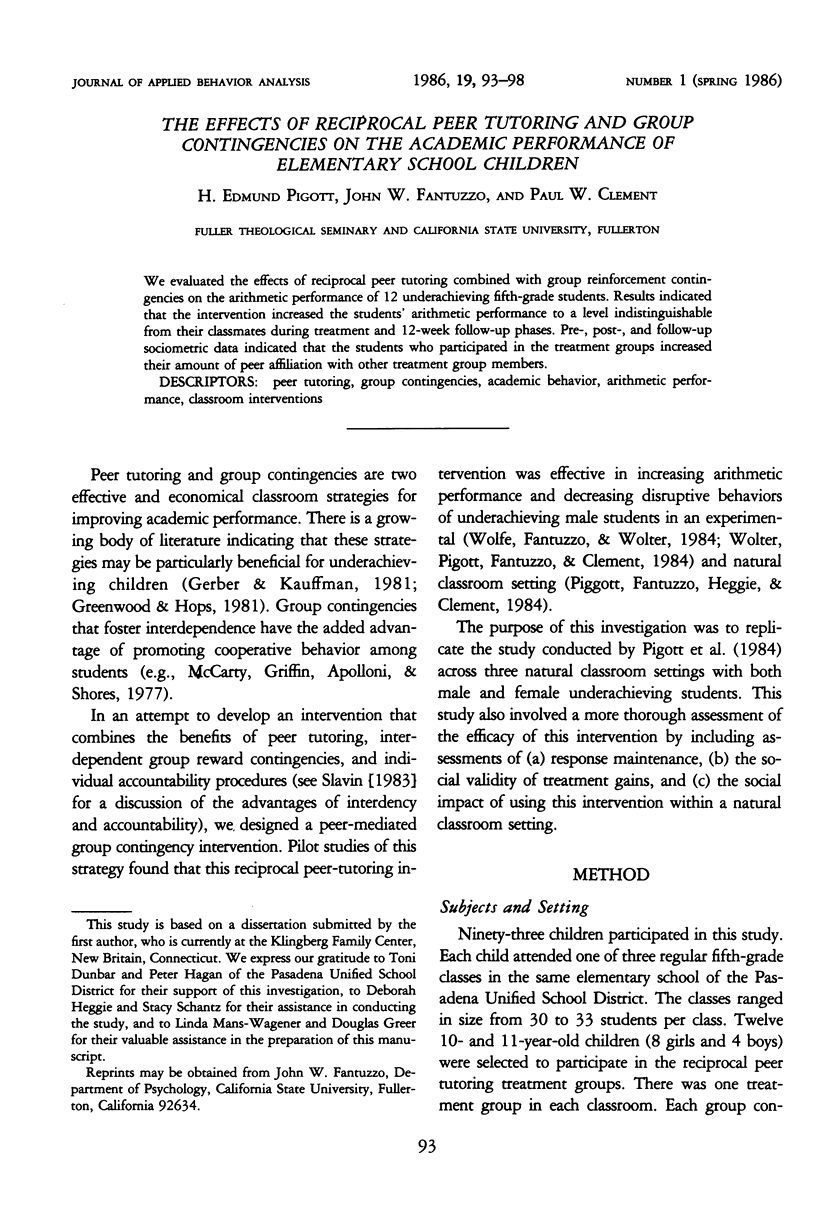
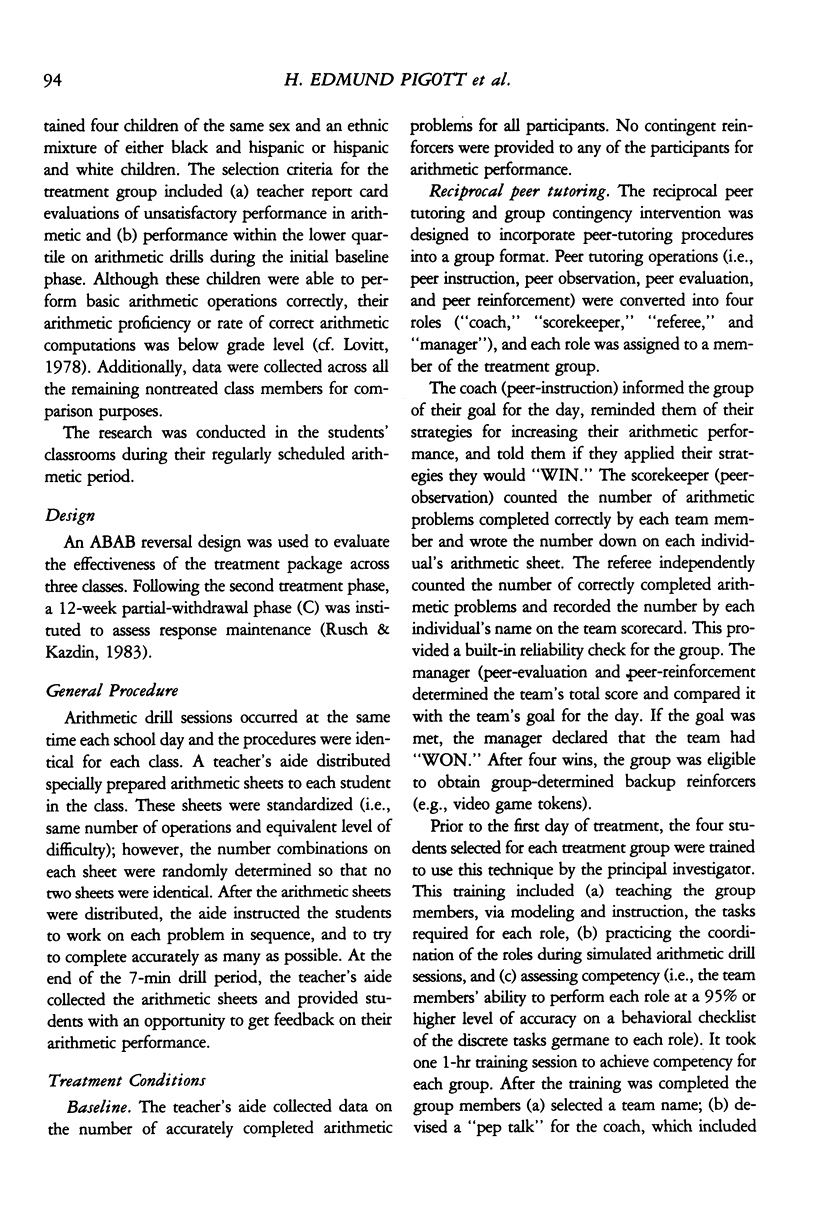
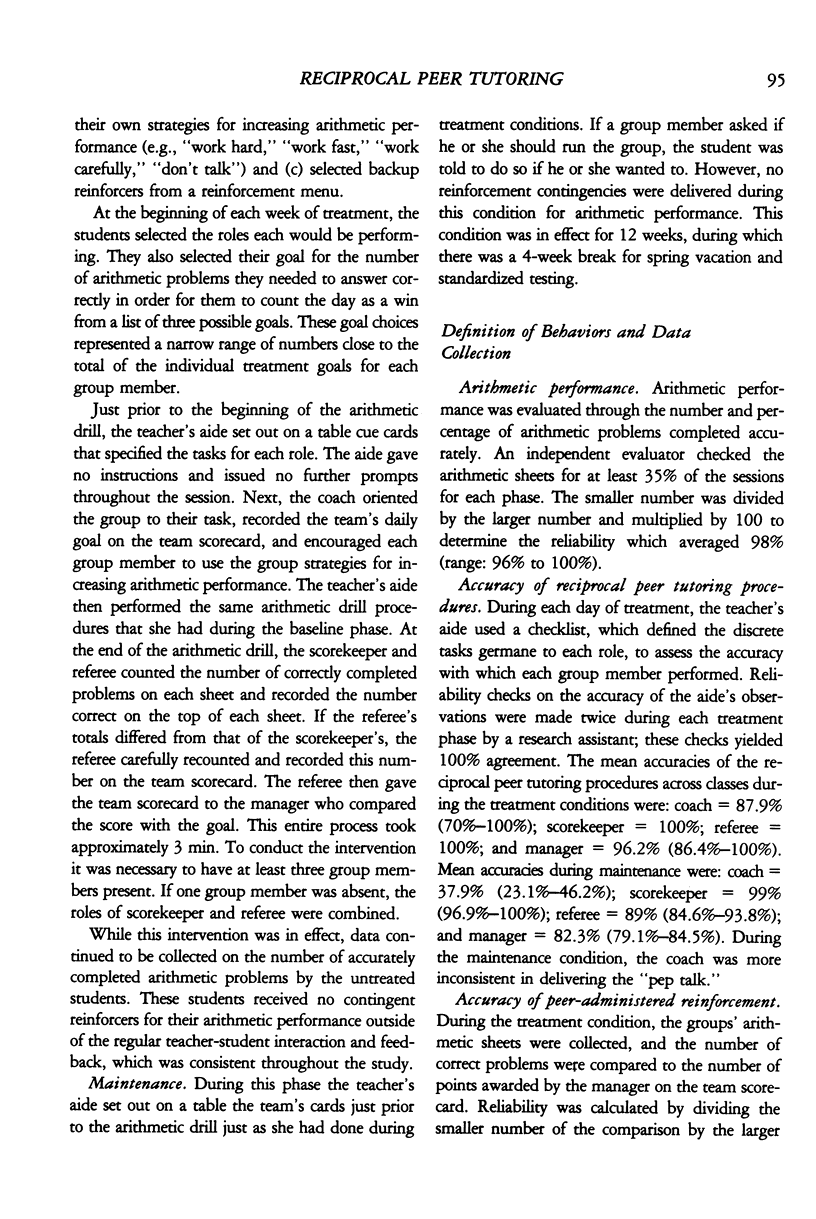
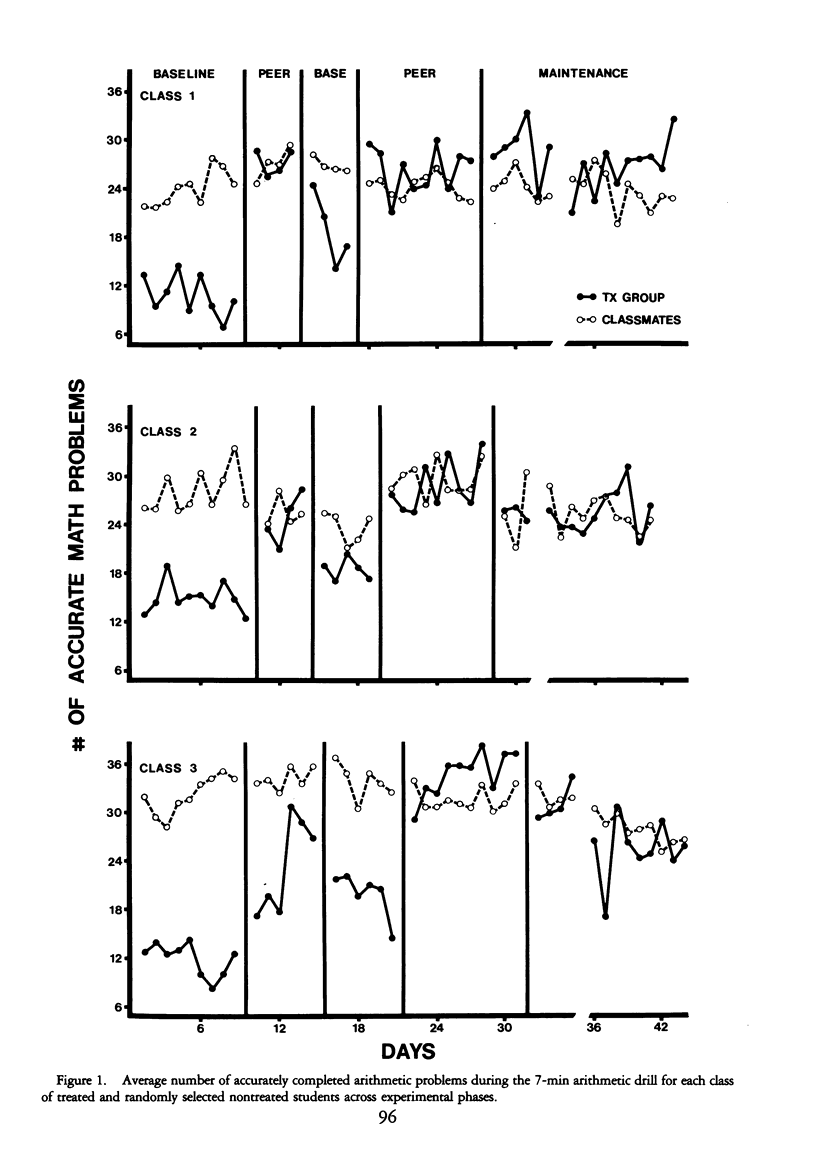
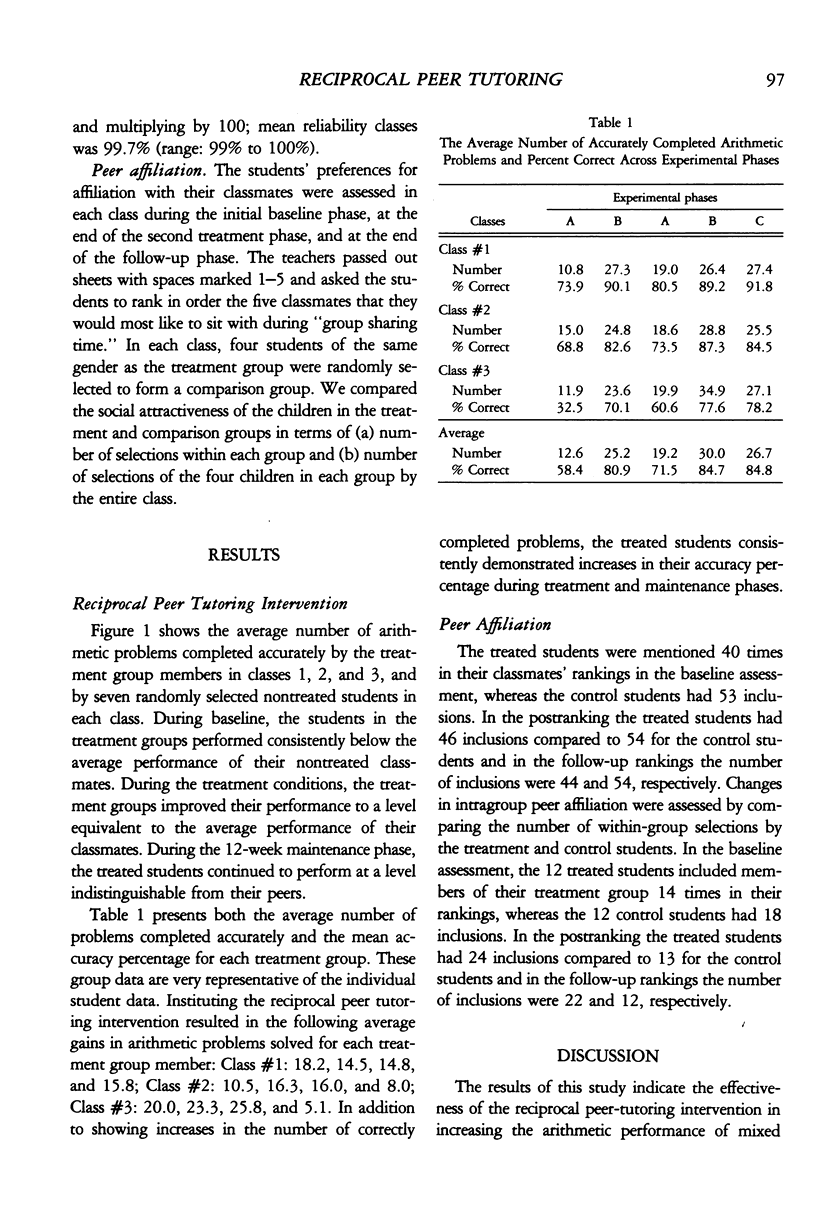
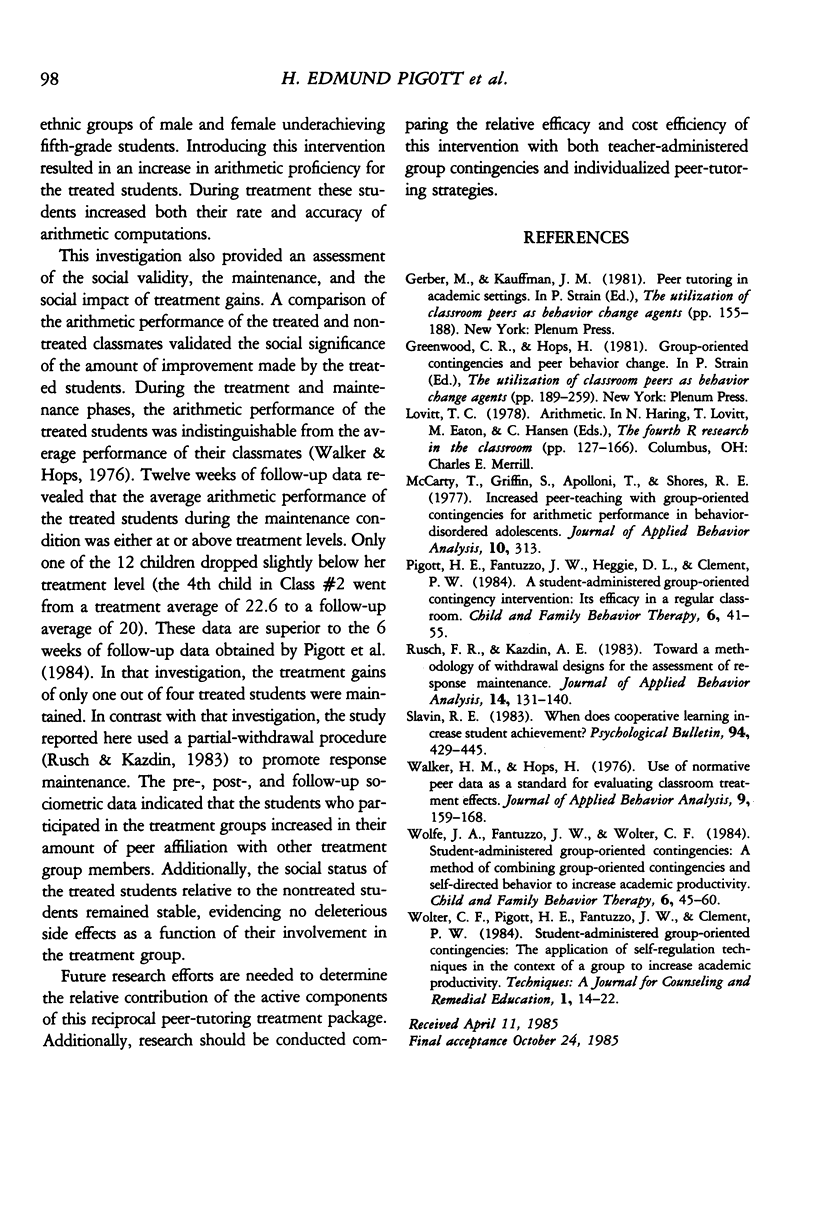
Selected References
These references are in PubMed. This may not be the complete list of references from this article.
- doi: 10.1901/jaba.1977.10-313. [DOI] [PMC free article] [Google Scholar]
- Rusch F. R., Kazdin A. E. Toward a methodology of withdrawal designs for the assessment of response maintenance. J Appl Behav Anal. 1981 Summer;14(2):131–140. doi: 10.1901/jaba.1981.14-131. [DOI] [PMC free article] [PubMed] [Google Scholar]
- Walker H. M., Hops H. Use of normative peer data as a standard for evaluating classroom treatment effects. J Appl Behav Anal. 1976 Summer;9(2):159–168. doi: 10.1901/jaba.1976.9-159. [DOI] [PMC free article] [PubMed] [Google Scholar]


